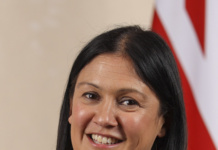With May’s general election in the UK around the corner, political parties are targeting the undecided and first time voters to ensure victories for their party. But most of the major parties are still not doing what is needed by addressing the concerns of the ethnic minority voters. Many of the eligible voters still say politicians cannot be trusted, as their promises are never kept thereby causing voter apathy.
The Electoral Commission is engaging with Facebook to launch an awareness campaign to encourage UK adults to register to vote ahead of the general election in May. This is with the hope that the campaign will convince the hard to reach eligible adult voter to register and vote.
According to a study by University of California, San Diego, when Facebook ran a similar campaign prior to 2010 midterm US elections, it increased turnout by a third of a million people.
Alex Robertson, Director of Communication at the Electoral Commission, said, “We’re delighted to be working in partnership with Facebook again to reach those who will be eligible to vote on polling day.
“We saw at the Scottish Independence Referendum that young people are passionate and engaged about the issues that affect their lives. It’s vital that we continue to reach them on platforms like Facebook with information that’s accessible to them.”
A report by the University of Manchester and Migrants’ Rights Network suggests about four million foreign-born residents will qualify to vote in the May 2015 elections. From our investigations, over 60% of that figure are from the black and ethnic minorities communities. Yet there is little being done target those communities.
Whether a Facebook campaign will encourage migrant voters to register is left to be seen. The reasons for low participations are not just due to lack of awareness. General apathy amongst ethnic minority voters has to do with the belief that politicians are completely detached from the realities that ethnic minorities are facing daily. The majority believe that political parties have to come up with answers to the most important issue of racism and discrimination, which may be responsible for the high unemployment figures among the ethnic minority. Others are concerned about the poverty gap, under-representation and immigration.
There is no denying the fact that race inequality remains prevalent throughout all sectors in the UK especially in higher education, including staffing, admissions and employment, according to a report released by leading UK race equality think tank the Runnymede Trust.
Black and minority ethnic (BME) students must do better than their white peers in order to get into university in the first place, and are still less likely to get into the more prestigious institutions, notwithstanding their A level results.
Dr Omar Khan, Director of the Runnymede Trust, said: “Evidence that white British students with lower A-level results are more likely to get into elite British universities than Asian students with higher A-level results suggests there is unconscious bias, if not positive discrimination, in favour of white university applicants in 2015.
The obvious question, then, is, if these racial inequalities persist across every measurement of outcomes in higher education, will black and minority ethnic students continue to pay £9000 a year for a much poorer experience than their classmates?”
The government, in an attempt to include people who are under-represented on the electoral register has also announced a campaign to encourage registration among people who are eligible to vote in the UK. This includes students and people from black and minority ethnic backgrounds. For the efforts to yield dividends political parties have to embark on membership drive for the parties to reflect British diversity as well as changes in its policy and perception especially within the ethnic minority communities and young people in general.










